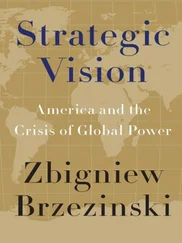Although Lemkin was determined to see genocidal perpetrators prosecuted, he did not believe the genocide convention should itself create a permanent international criminal court. The world was “not ready,” he said, as the court would mark too great an affront to state sovereignty. Instead, under the “universal repression” principle, genocidists should be treated as pirates had been in the past: Any country could try a genocide suspect, regardless of where the atrocities were committed.
In August 1948 Lemkin cobbled together the funds to fly to Geneva to lobby the UN subcommittee that was overseeing the drafting of the actual text of the genocide convention. 29No longer working at the State Department or teaching, he lived off donations from religious groups and borrowed from a cousin who lived on Long Island. He found his stay in Geneva eerie, as it was the first visit he had paid to the former home of the League of Nations since 1938, when he had lobbied “paralyzed minds” to prohibit barbarity. With “the blood…not yet dried” in Europe, he hoped his plea would be heard differently this time. He also knew that he had a distinct advantage operating in Geneva rather than New York because the UN delegates, away from their headquarters, were likely to be lonelier and more prepared to endure him. Lemkin knew he grated on people’s nerves. Often, before entering a room, he would pause outside and make a pledge to himself not to bring up genocide and instead allow the conversation to drift from art to philosophy to literature, subjects in which he was fluent. If he could bring himself to hold his tongue, he told himself, eventually his companion would be better disposed to his campaign. When he delivered formal lectures on genocide in Geneva, he was less shy. “I did not refrain from reading aloud from my historical files in considerable detail,” he wrote. 30Indeed, he rarely censored his graphic tales of torture and butchery.
Wherever the law went, Lemkin followed. He decided to prepare for the September 1948 General Assembly session with a short rest near Montreux, France. Lemkin recovered some of the strength sapped by years of unceasing commotion. While visiting a local casino, he even invited a young lady to dance a tango. He was captivated by her beauty and recalled, “Every word the girl said was intelligent and meaningful.” She told him she was of Indian descent, born in Chile. Lemkin saw his opening: He informed her that his work on mass slaughter would be of particular interest to her because of the destruction of the Incas and the Aztecs. 31This was one pickup line the young woman had probably never heard before. She soon departed.
When he returned to Geneva, Lemkin attended every single session of the Legal Committee. In between sessions he prepared memos for the delegates. 32He felt it essential that they draw upon historic cases of mass atrocity so the law would capture a variety of techniques of destruction. He ritually reminded the representatives of the old maxim that the “legislator’s imagination must be superior to the imagination of the criminal.” 33The convention’s chief opponent in Britain was Hartley Shawcross, who had prosecuted the Nazi defendants at Nuremberg and considered the genocide law a waste of time. Shawcross ran into Lemkin in the hall in the fall of 1948 and remarked, “The Committee is becoming emotional, this is a bad sign.” Lemkin, who was so tired that he could hardly stand up, was heartened. 34The Legal Committee approved the draft and submitted it to the General Assembly, which scheduled a vote on the measure for December 9, 1948.
After a bruising year of drafting battles, the 1948 Convention on the Prevention and Punishment of the Crime of Genocide settled on a definition of genocide as
any of the following acts committed with intent to destroy, in whole or in part, a national, ethnical, racial, or religious group, as such:
1 Killing members of the group;
2 Causing serious bodily or mental harm to members of the group;
3 Deliberately inflicting on the group the conditions of life calculated to bring about its physical destruction in whole or in part;
4 Imposing measures intended to prevent births within the group;
5 Forcibly transferring children of the group to another group.
For a party to be found guilty of perpetrating this new crime of genocide, it had to (1) carry out one of the aforementioned acts, (2) with the intent to destroy all or part of (3) one of the groups protected. The law did not require the extermination of an entire group, only acts committed with the intent to destroy a substantial part. If the perpetrator did not target a national, ethnic, or religious group as such, then killings would constitute mass homicide, not genocide.
Lemkin of course opposed all forms of state-sponsored murder, but his legal efforts were focused on the subset of state terror that he believed caused the largest number of deaths, was the most common, and did the most severe long-term damage—to the targeted groups themselves and to the rest of society. The perpetrator’s particular motives for wanting to destroy the group were irrelevant. Thus, when Iraq sought in 1987–1988 to purge its Kurdish minority on the grounds that it inhabited a vital border area, it was still genocide. When the Rwandan government tried to exterminate the country’s Tutsi minority in 1994, claiming that armed Tutsi rebels posed a military threat, it was still genocide. And when the Bosnian Serbs tried to wipe out the non-Serb presence in Bosnia after the Muslims and Croats had declared independence from Yugoslavia in 1992, it was still genocide. What mattered was that one set of individuals intended to destroy the members of a group not because of anything they did but because of who they were. If the General Assembly passed the convention, nobody would be immune from punishment—not leaders, public officials, nor private citizens. The treaty would enshrine a new reality: States would no longer have the legal right to be left alone. Interfering in a genocidal state’s internal affairs as Morgenthau had tried to do was not only authorized but required by the convention. If a government committed or permitted genocide, signatories would have to take steps to prevent, suppress, and punish the crime, which no instrument had ever required before. States had considerable autonomy in deciding what steps to take, but they were expected to act. The convention could be read to permit military intervention. The law even implied its necessity by enshrining a legal duty to “suppress” the crime, but neither the law nor the law’s drafters discussed the use of force. It was a large enough leap to convince a state’s leaders to denounce or punish the crimes of a fellow state.
The genocide convention boldly closed many of Nuremberg’s loopholes. It made states (and rebels) liable for genocide regardless of whether they committed aggression against another country or attacked only their internal “enemies.” Peacetime or wartime, inside a country or outside, the 1948 treaty made no distinction.
The convention’s enforcement mechanisms were more explicit about punishment than prevention. A state signatory would be bound to pass a domestic genocide law and to try any private citizen or public official for genocide committed on or outside its territory. Countries would try their own genocide suspects as well as those who wandered inside their borders. This left gaps. In the case of postwar Germany, for instance, it would have meant relying principally on former members of the Nazi Party to try Nazi criminals. Still, even if those responsible for genocide continued to hold power, they would be reluctant to leave their country and risk arrest. The basic idea, as the Washington Post noted in one editorial endorsing the criminalization of genocide, was that the law “would throw a sort of cordon sanitaire around the guilty nation.” Genocide perpetrators would be trapped at home, and “the sort of persecution of helpless minorities which has hitherto gone unrebuked” would be stigmatized. “Genocide can never be the exclusive internal concern of any country,” the editorial concluded. “Wherever it occurs, it must concern the entire civilized world.” 35If the convention were passed, genocide would become everybody’s business.
Читать дальше












